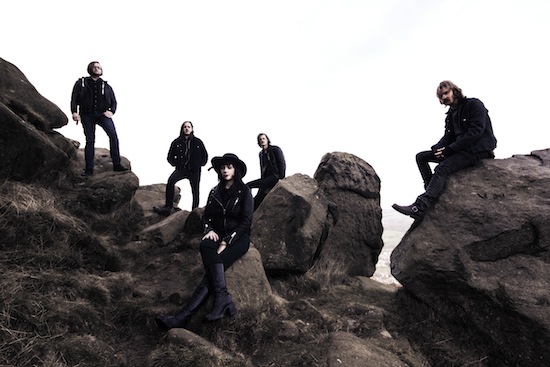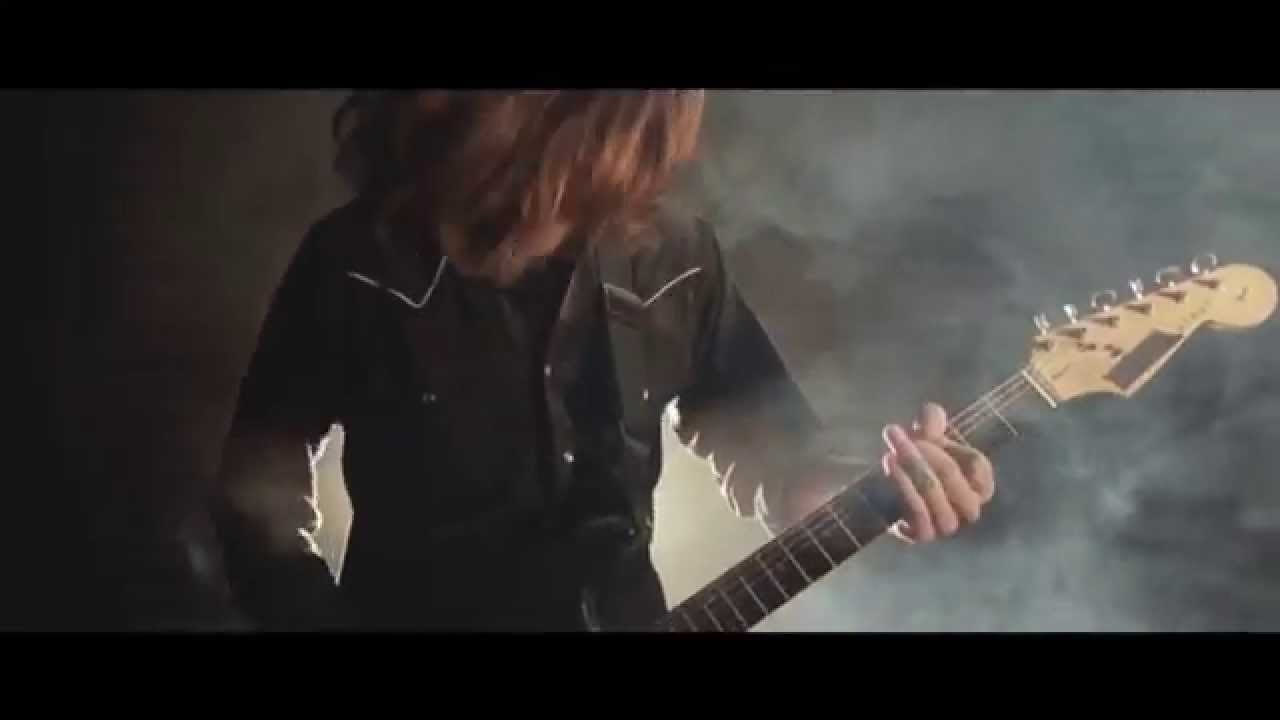There’s a bare bones beauty to the Yorkshire moors. Having been brought up under the contorted shadow of it, as a child I was used to looking up and seeing nothing but coarse moorland stretching endlessly out and above. To stand among the rocks, carved with the names of adventurous Victorian climbers long gone, under the oppressive grey sky with feet firmly in the mud but head in the grey clouds can imbue you with a sense of desolation. There are no boundaries, just endless landscape. The moors paradoxically create an intense environment on the towns below, looking out of bedroom windows all that can be seen is the sunlight, creeping through the clouds and hitting the silvery heather. It is here beneath this desolate skyline that Leeds doom harbingers Black Moth reside. Are we shaped by the landscapes we were raised in? To listen to Black Moth’s first LP The Killing Jar, it would massively seem that way.
"It’s a pure product of the north," announces Bad Seed and Black Moth producer Jim Sclavunos of the album on a suitably gloomy afternoon in London. "The band write the songs and I help out with little suggestions, sometimes with the lyrics, but mainly the band has written everything themselves before I come to them. I just try to flesh things out, show them a different perspective from outside the band. I suppose I’m like a surrogate listener, with a critical ear and an idea of where things need to go."
It’s been two years since Black Moth’s debut LP, and the band have just announced its follow-up, Condemned To Hope – watch the video for lead-off single ‘Room 13’ below. Does he feel he nurtures them from afar? "Well, I don’t have any children… I hate the fleshy little creatures so if there’s any paternal instinct in me at all it comes out through production, through working with bands. And I guess it comes out even more with younger artists. I suppose I’m like an elder statesman of rock & roll!" Like your enfant terrible? "Yeah! I suppose I’m still just a visitor though. What I do for them that’s really important is that I can give them a different perspective on the sort of music they’re creating."
Has writing the new songs been a democratic process?
Harriet Bevan: Yes, it always is with us. We are lucky enough to be in the position where not only one person comes up with the riffs/initial ideas. Once we begin to work on an idea, no matter whose idea it was originally, we put it to the council and stuff gets changed around/ added to/improved/axed and we take ownership of it as a collective. Everyone has a say while we arrange the new songs – we don’t have a formula, and I think the output is richer for that.
How has the addition of Nico Carew influenced the Black Moth sound? Do you think it’s changed the sound or dynamic to have an extra guitarist?
HB: Nico has brought his own unique musical influences which are pretty different to other members of the band. Sometimes he’ll have a different way of approaching a song than say Jimmy [Swainston], our other guitarist, will. In terms of the dynamic, I think that’s definitely changed. Before Nico, Jimmy would have to make the decision to play a lead part instead of the rhythm which could take away from overall heaviness. Now we have that option of having both, and the two guitars can interact with each other in interesting ways. I think you will notice a lot more of that on the new album. He’s completed our dysfunctional little family just perfectly!
What music does the band listen to? There’s the obvious doom bands, but I wondered if there were other sounds that inspired you?
HB: Personally I listen to such a broad range of sounds I struggle to say what directly influences my songwriting with Black Moth. I’m sure it all feeds in but then the fact that I listen to a lot of Melvins, Stooges and Sabbath is probably more obvious than the fact that I was really spending most of my time obsessing over dark old country records, doom folk, devastatingly lovely 50s and 60s pop and a perhaps disproportionate amount of Om’s Advaitic Songs. But that’s just me.
Everyone listens to totally different music. Nico loves his rock & roll, punk, black metal, roots, anything but disco (a genre we argue about a lot), Dom [McCready, drummer] is listening to a lot of death and black metal at the moment. Dave [Vachon, bassist] loves his 70s rock and prog. Jimmy has been on a funk and soul train but also recently rediscovered his love for UK garage. I think this is why people often say we’re hard to pigeonhole into a specific genre or subgroup. We allow all of our varied musical tastes to influence us. Reckless, I know.
You’re also an artist – how do you think your artistic practices or perspective affect the creative processes in the band? Or is it completely separate?
HB: Am I?! Well thanks, I think. I do like to be involved with various creative projects. I burn old history books really slowly with soldering irons mostly, and am becoming increasingly interested in sound art since joining a very enchanting cast of performers called Moon Ra in Rome last summer. The performances are long, trance-inducing, immersive spectacles – largely improvisational – and it has truly made me consider the act of singing in a new light. Its mystical emphasis feels, in some respects, a million miles from my relatively profane beast of a rock & roll band, but I think it’s a complementary opposition!
I should also mention Relic Zine, which I launched last year with yourself Jessica, and Jessika Green, editor of TiP, a brilliant online publication, operating from Balmond Studio, which I have also just started working for. Relic is a music zine in a VHS box that is not so much about music itself, but about the broader picture of things that have influenced musicians or music itself has inspired. Issue number two is planned for summer ’14!
Condemned To Hope is released on September 15 via New Heavy Sounds. Black Moth play a launch show for ‘Room 13’ at The Barfly in London on July 3, Truck festival in Oxford on July 18 and Y Not Festival in Pikehall, Derbyshire on August 3



